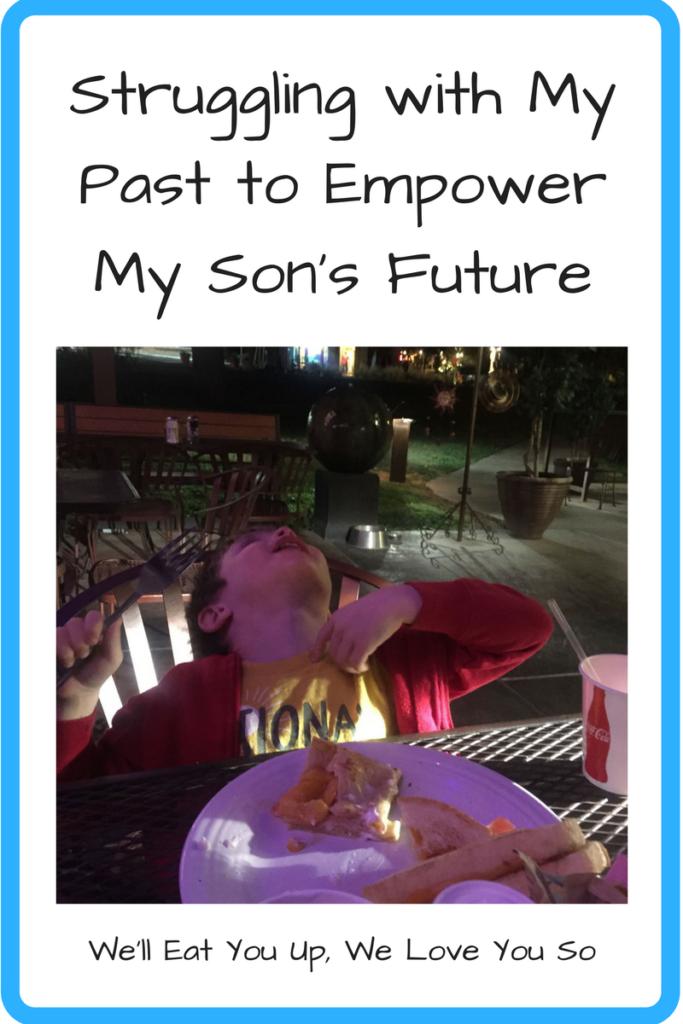
“I talked to the teacher today,” my husband said while he was making dinner. While his statement was neutral, his strangled tone of voice revealed something was wrong. “The teacher” is our four-year-old’s preschool teacher.
After we put the kids to bed, he said, “She said he’s having trouble makingfriends.”
Ah. That’s what it was.
As I thought of how to respond, I remembered a little third grader sitting a lunch table by herself because the other kids told her she couldn’t eat with them. A fifth grader watching a group of girls in confusion, wondering why everyone somehow knew the lyrics to some song she’d never heard of. A seventh grader picking gum out of her hair and snatching her poetry notebook back from bullies. An adult who still sometimes talks too much to sound smart and avoid the dreaded silence.
And I thought of a shy little boy who was great at listening but slow to talk. Who as an adult stands on the edges of conversations with new people. Who still sometimes says, “I’m not good at making friends.”
I thought of how he grew up to marry that girl and have two amazing kids who they love very much.
Worry struck my heart, making me catch my breath. Maybe social awkwardness runs in our family, as sure as the blue eyes that I passed down to my sons do.
Despite our past, I thought that maybe, maybe our kids would be naturally social. When Sprout (our nickname for him) was little, kids would coo at him, saying “he’s so cute!” I hoped his natural charisma would keep him from facing the difficulties I did.
But then the preschool teacher stated her concerns. Based on his observations, my husband confirmed the truth of her statement.
Questions poured over me. Will he ever catch up? Is this a pattern for the future? What if we get help? What if we don’t get help? What if he gets bullied? What happens when kids start not wanting to be friends with him? What if he turns out like me?
Somewhere in the middle of spewing this endless list of questions at my husband, a realization dawned on me. I was projecting my school-age trauma on him. It’s not fair to burden him with my bad experiences. He’ll have plenty of his own challenges to face without mine. Kids are complicated. Relationships are complicated. People are complicated.
Even if he does need formal help – that’s okay too. I’ve thought many times how a little assistance in the social realm may have saved me a lot of heartbreak. While there’s never any handbook, speech pathologists and psychologists can provide tools for approaching social situations a lot better than they did when I was a kid. They don’t just let other kids label you as weird and leave you hanging.
And even being awkward isn’t all bad in the end. In elementary and junior high school, I would have traded my hundreds of books for a single, shining moment of coolness. (And then immediately regretted it.)
Now as an adult, I see what those difficulties have taught me. Those experiences increased my compassion towards others, forced me to be intentional about listening, and helped me be aware of my own blind spots.
Because I was “weird,” I became part of a group of kids as quirky as I was, many of whom became lifelong friends. One I even married.
Most of all, being different sharpened my sense of self. When you don’t fit in, you have to learn fast and hard who you are and what you believe. It gives you something to cling to in the roiling waters of teenagerdom. Because I had to figure out and defend who I was for so many years, I never had the quarter-life or mid-30s crisis of self that so many women do. No matter what happens, I hope my son can find that core and hold onto it tightly.
I know my son’s journey through life will be glorious and hard and messy. It will be just like mine but completely different. We’ll love him for who he is, while also ensuring he has the tools to effectively navigate through the world. In preschool or adulthood, I’ll never be the captain of his life, but I want to give him a compass and map that will serve him well.
Loving my kids for who they are is an ongoing process. You may want to read more in Learning to Love My Son Exactly Where He’s Standing. If you want to help your family learn more kindness towards others, be sure to join us for our Five Day Family Kindness Challenge!